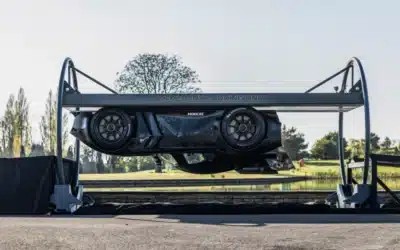
Electric skeptics often try to claim that EVs are not actually very good for the environment. Common accusations are that they require more energy to produce, that the mining of rare metals is damaging and that the electricity is often ‘dirty’.
Well, a new study by Germany’s Federal Environment Agency (UBA) into EVs registered in 2020 has found that they are around 40% more climate friendly than cars with gasoline engines when all factors are taken into account through a lifecycle analysis.
And the study also predicts that as renewable technologies advance, this advantage will increase to around 55% for cars registered in 2030.
What is a lifecycle analysis?
One way to determine the environmental impact of electric cars is through a lifecycle analysis. This involves evaluating the emissions produced at every stage of an electric vehicle’s life cycle, from manufacturing and assembly to operation and disposal. While electric cars do not emit carbon dioxide (CO2) during operation like gasoline-powered vehicles do, there are emissions associated with their production and battery manufacturing.
Manufacturing Phase
The production process for electric cars involves mining raw materials such as lithium, cobalt, and nickel for batteries, which can have a significant environmental impact. Mining operations can lead to deforestation, habitat destruction, and water pollution if not carried out responsibly. Additionally, manufacturing an electric car produces more CO2 emissions than producing a conventional vehicle due to the energy-intensive nature of battery production.
Operational Phase
During the operational phase – when they are being driven – electric cars produce zero tailpipe emissions since they run on electricity rather than gasoline or diesel. This results in many fewer greenhouse gas emissions overall and better air quality in urban areas where pollution from transportation is a major concern.
End-of-Life Phase
When an electric car reaches the end of its life cycle, recycling or disposing of its components must be done carefully to minimize environmental impact. Battery recycling technologies are still developing but hold promise for reducing waste and recovering valuable materials like lithium and cobalt.
EV manufacturers are all trying to reduce the overall impact of the lifecycle of their vehicles. Most notably, Polestar is aiming for its first climate-neutral production car by 2030.
So, next time you get into a debate about the relative ‘green-ness’ of an EV, you can draw on this serious German study to prove your point.











